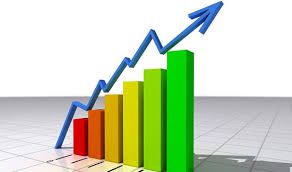The World Bank has projected that Liberia’s economic outlook is “positive,” with real GDP growth projected to increase to 4.7% in 2019 and 4.8% in 2020, underpinned by modest growth in agriculture, fisheries, and services.
The Bank said in an outlook of the Liberian economy recently that inflation is expected to decrease further to 10.5% in 2019 and 9.5% in 2020 because of a stable exchange rate, prudent monetary and fiscal policies, and a modest increase in domestic food production.
The current account deficit is expected to remain slightly above 22% in both 2019 and 2020, it noted.
The Bank pointed out that real GDP growth rebounded to an estimated 3.2% in 2018, from 2.5% in 2017, driven largely by mining and manufacturing, while agriculture, forestry, and fishing dominate the economy, contributing 70.3% of GDP in 2017.
“A moderate increase in revenues, combined with a decrease in spending, reduced the fiscal deficit to 3.9% in 2018 from 7.9% of GDP in 2017. Liberia remains at a moderate risk of debt distress. Total
public debt was 41.3% of GDP in 2017, about 69.6% of which (or 29% of GDP) was external,” the bank reported.
It noted the Liberian dollar depreciated by 24.5% against the US dollar in 2017 and by 27% by the end of June 2018, explaining that the depreciation was caused by deteriorating terms of trade and high
demand for foreign exchange for imports.
Nevertheless, the World Bank said, inflation was an estimated 11.7% in 2018, slightly lower than in 2017, due partly to high dollarization (about 70% of broad money).
The current account deficit improved marginally to 22.4% in 2018 from 22.7% in 2017 as exports increased due to gold production and a modest recovery of commodity prices. Gross foreign reserves increased slightly from 3.0 months of imports in 2017 to 3.6 months at the end of June 2018.
“The positive outlook could be overshadowed by the risk of debt distress, which could go from moderate to high if borrowing to meet large public investment needs increases while the output of key export sectors declines,” the bank said.
It observed that a decline in aid inflows after the 2014–16 Ebola crisis and the 2018 completion of the UN peacekeeping mission in Liberia may affect the economic outlook.
The shortage of foreign exchange could constrain the highly dollarized banking sector, the report indicated, adding that the dependence on exports of primary commodities (gold and iron ore) and imports of food and fuel make it highly vulnerable to external shocks.
In particular, the World Bank said, demand for Liberia’s commodity exports could be reduced by a slowdown in the advanced economies or in China, due to recent trade tensions.
The infrastructure deficit constrains development, particularly, roads, energy, and water and sanitation, the bank said, citing the country has an estimated 12,000 kilometres of roads, only 7% of which is paved.
TSS/abj/APA


